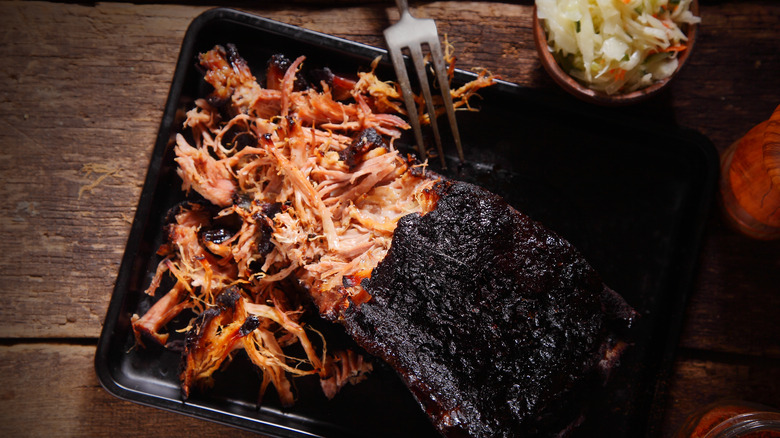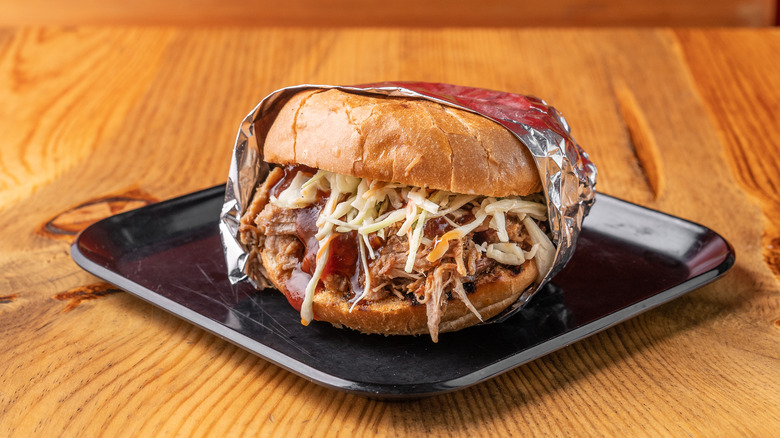What Makes East And West North Carolina BBQ Sauce Different?
Barbecue lore is rich and runs deep. It evokes a sense of place, and it's tied to tradition. Whether you're savoring a chopped chicken sandwich with white sauce (from Alabama, naturally), or sweet-sauced, hickory smoked burnt ends (in Kansas City, of course), barbecue is perhaps the most regional of all regional cuisines. And North Carolina is no exception; in fact, it's regionalized even within the state.
When it comes to North Carolina barbecue, it's east vs. west. Barbecue originated in the east, where historians have traced records of vinegar-based sauces for centuries. Both styles of barbecue focus on pork, and both tend to use oak and hickory for smoking. East and west North Carolina barbecue sauces are both vinegar-based as well, but that's where the similarities end.
East North Carolina focuses on the whole hog, using every part that's edible. The hog is cooked low and slow, often overnight, and it's basted with a thin sauce that's little more than cider vinegar, peppers, salt, and black pepper, with the occasional addition of a little sugar. The result is rich, smoky pork with the tang and heat from the vinegar and peppers. It's a purist's style of barbecue, and the thin sauce gives the pork nowhere to hide.
What's up in the west?
Western North Carolina barbecue is often called Piedmont style (after the region), or Lexington style (after the city). As is so often the case, necessity is the mother of invention. The NC barbecue debate is rooted in the way barbecue was handled and sold in the west, compared to the original in the east. While the eastern part of North Carolina patiently smoked an entire hog — a lengthy endeavor — in the western cities, barbecue was being sold in pop-up stands, which made pork shoulder a much more convenient cut, compared to an entire hog.
The western part of North Carolina had been settled by a number of people of German descent, and they adapted the traditional eastern style of sauce to move it closer to a traditional Bavarian dish made with pork shoulder in a sweet and sour vinegar sauce. Western NC barbecue sauce typically incorporates a little ketchup, sometimes some brown sugar, and even a little butter, making the sauce richer and sweeter than its eastern sibling.
Regardless of where you come down on the North Carolina barbecue debate, both the native styles and sauces have more in common with one another than with sauces and cooking styles in other parts of the country. Not sure where you fall in the BBQ realm? Include barbecue stops in your travel plans.

